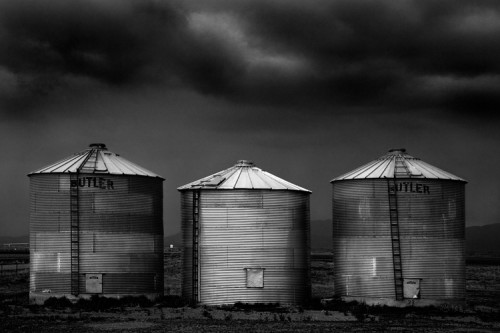
Cole Thompson, photography.
“Violence is a part of America’s culture. It is as American as cherry pie.”
H. Rap Brown
“We see images on TV, and evaluate ourselves on the basis of what we see.”
Jena Gordon
“The culture’s habit of finding “seriousness” acceptable only if offered by people who are finally not serious is yet another way that our culture makes certain that nothing alarming will come of our newfound interest in heretical ideas.”
Curtis White
There is a certain type of white liberal (overwhelmingly white, but not exclusively) in the U.S. today, and they and their sensibility and values define Hollywood products. Film of course, but far more, really, in television. And they are increasingly defining electoral political theatre. The emergence of this particular vein of mass cultural product began about 1990. It may have existed to some degree before, certainly, but the distillation of this sensibility can be traced to the early 90s. It was there, in its crude form by the mid 80s, but more in feature films than TV. The Harold Ramis films, the Spielberg films, John Hughes, Ivan Reitman, these were the defining films of the Reagan era. But in the 90s, television became the concretizing medium for liberal values. Perhaps the quintessential franchise for the 90s was Dick Wolf’s Law & Order. First broadcast in 1990, this show and its spinoffs dominated TV drama for over a decade. And it is interesting to see just how deep the influence was, but also how it had inherited and reconfigured the reactionary cop dramas of earlier decades. It was the first *prestige* cop drama. It gave a patina of high minded seriousness to cop theatre; Starsky and Hutch or S.W.A.T. were self consciously juvenile 70s pulp, but Wolf implemented all the cues for prestige white smugness, affluent west side LA values, and police virtue in the somber stoicism of Law & Order. Now Hill Street Blues (1983) was the first cousin and precursor to the Dick Wolfe franchise, and Steven Bochco certainly can be credited with establishing the mock high seriousness and the exploration of cop inner lives, but Hill St.Blues was still an unapologetic genre show. Mary Tyler Moore Productions (MTM) was at that time creating a new niche audience; a ‘special elite’ audience in which hour long drama was set in tones appropriate to a better educated white viewer. But it was still genre. It was overtly *realistic* and it was recuperating the nobility of the honorable policeman from the cynicism of the Dirty Harry decade. Except of course the majority of those 70s crime films (Dirty Harry, Bullitt, French Connection, were only half cynical, and half authoritarian. They were also, usually, highly ambivalent. And in the case of Dirty Harry, of course, there was the additional fascistic trope of vigilantism). Hill St. Blues was ensemble and sort of archly gritty in his presentation. But the grit was really pretty mild. But this was also the first show to utilize the steady cam and a constantly moving p.o.v, which coincided with the large ensemble cast. The desired effect was to be read as *urban*. Urban was always moving, messy, but under control: and here the Wambaugh influence should be noted, too. The heroic urban cop, flawed, self destructive, but still, forming that *thin blue line*.
This also marked the black and white buddy theme in prime time. It was the TV echo of Lethal Weapon. The domesticated black hero-cop (often returned from Viet Nam) and his white partner are recreating their failed war in southeast Asia. But the black cop characters are never politicized. Never. In fact they are far more often, in such franchises, to be non threatening, bourgeois, and family men. It is the liberal alibi against the disproportionate number of black villains and the stereotyping of ‘inner city’ black youth. Often the black cop has, to a degree, been traumatized by the “loss” in Viet Nam. I am pretty sure not a single episode of Hill St. Blues ever touched on black activism.
And in Capt. Furillo one sees the precursor to Jack McCoy (Sam Waterston). Except Furillo is too tinged with traces of proletarian insecurity. That changed as the the liberal value system distanced itself from the working class.
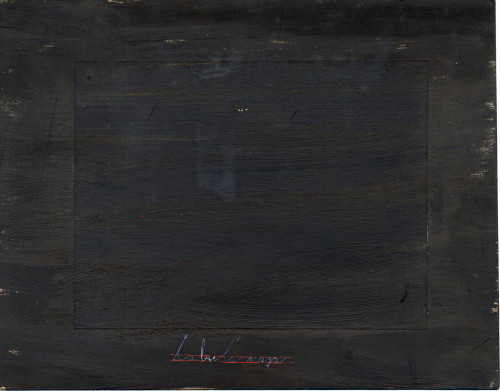
Mangelos (Dimitrije Bašičević).
Law & Order was presenting itself as ‘drama’, not genre. It came replete with somber repetitive sound cues announcing each new chapter, and in fact the self conscious presentation of chapters was itself a signifier for *serious*.
Hannah K. Gold wrote…“One 2004 study, which analyzed racial representation in Law and Order and NYPD Blue, found that blacks are shown as suspects 40 to 50% more often than as victims. They also found whites are about twice as likely to be shown as victims, rather than offenders. Furthermore, as the study notes, “even if blacks are not shown disproportionately as offenders, compared to Whites, their portrayals still reinforce the stereotype of the ‘young black male’ criminal.” According to Gray Cavender and Nancy Jurik’s paper “Policing Race and Gender, ”both prime time crime drama and reality television programs present crime in a manner that heightens fears by whites when they view persons of color,” which has more to do with how minorities are represented than how many, especially given the under representation of black and Latino actors on television.”
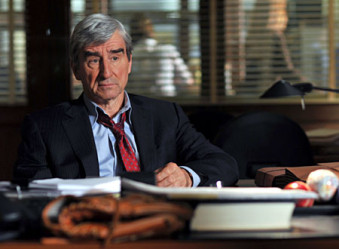
Sam Waterston
It is not just the perpetuation of racial stereotypes, and the demonizing of the poor, it is also this establishing of a backdrop of crime infested big cities. This goes back to Reagan era propagandizing, but it was carried through in Hollywood film and TV, and intensified, but more, it was given the cover of prestige drama, of seriousness. And it was the manufacturing of a particular kind of moral world view. Not just in relation to the police and criminal justice system, but more, to the ways in which people interact. The idea of class balkanization was being routinized.
Now there has been a clear and marked increase in the overt nationalism and pro-military ethos of TV drama, and increasingly TV cops shows present police departments as if they were military cadres. The emphasis is on the private world of these new warrior priests. And the number of military shows (sci-fi or not) has increased dramatically. The focus on military technology has also increased even in shows not strictly military (see The Last Ship, Homeland, 24, Scorpion, The Following, Murder in the First, The Unit, Last Resort, Generation Kill, Major Crimes, et al ). But these shows are really still genre, and self aware about it. Law & Order was the first serious ‘crime drama’, one that was not seen as a ‘guilty pleasure’. This was marketed as (and seen by networks and its creators) as closer to Dickens than Mickey Spillane.
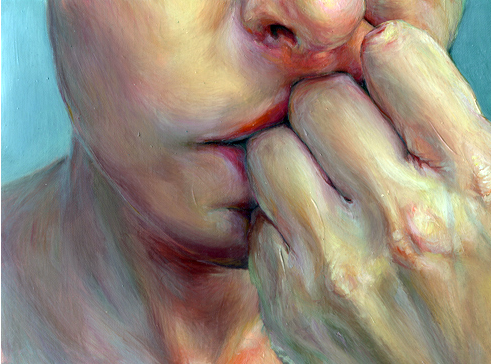
Jen Mazza
“Individuals {TV audiences} have become more concerned with the
identification and satisfaction of their personal needs than developing a sense of
cooperation or community with others.”
Sheras & Koch-Sheras, 1999.
Adam B. Shniderman (in a paper for Law and Psychology Review) writes…
“The police and prosecutors in this view are portrayed as the “good guys” keeping the people safe from a dangerous world of criminals, and their tactics, regardless of how draconian and unconstitutional they may be, are necessary to get the job done effectively and expeditiously. On the other hand defense lawyers, the occasional by-the-book ADA, and even the Constitution are portrayed as impediments to justice. They obfuscate and distract from the correct outcome – a guilty verdict. The show suggests that if a suspect isn’t guilty, he or she isn’t brought to trial.”
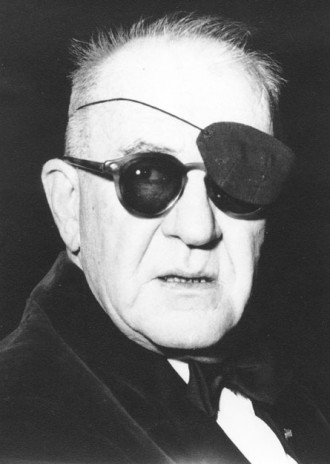
John Ford
Much has been written about the CSI franchise and the distorted depiction of forensics, but far less about Law & Order (which was Shniderman’s point, really) and I would argue that Law & Order is quite likely the most influential TV drama in history.
“The prosecutorial or police bias found in Law & Order and many of today’s police procedurals and legal dramas, as well as the inaccurate portrayal of a smooth, quick, and nearly flawless system, may shape jurors’ perceptions and core principles of the justice system.”
Adam Shniderman
There is a good deal to be said here about the masculinizing of justice. The portrayal of DAs and police detectives are almost always humorless, emotionally guarded, and borderline sadistic. But the clear implication is that such individuals are *needed* to keep society safe. The control of crime is the bedrock issue. And control comes from the authoritarian. Consistenly the Public Defenders and defense lawyers are shown as soft and feminized. It is probably not coincidental that the most sadistic cop on the show is played by Chris Noth, who also played Mr Big (the spectacularly rich and hence irresistible romantic interest on Sex and The City).
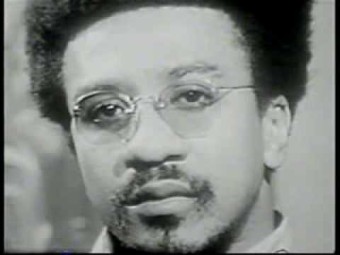
H. Rap Brown
One clear trend in TV crime drama has been the fusion of crime procedurals and family melodrama. Depictions of police families, in particular has increased, but family organization is depicted regularly as a sort of benchmark for class and a symbol of virtue. And this is true, of course, in news reporting and on the opinion pages of major newspapers. The middle class and wealthy often have problems but they are depicted as abnormal. The poor are routinely expected to be dysfunctional. The rich are attractive and the poor far less attractive. The fact that, for example, child molestation has been increasingly discussed in society and media has meant it increased as a narrative theme proportionately. The creators of TV drama, as I mentioned last post, are an increasingly consolidated and narrow group of people and their preoccupations of the same ones as the national bourgeois white rich.
If you want to create your own show you have to apprentice under a veteran show creator (Dick Wolf, Bochco, David Simon, David Milch, David Kelley, et al — it apparently helps to be named David). In any event, this reflects the polorizing of wealth in society at large. A striking characteristic of this new sensibility is that the social issues addressed in storylines are exclusively filtered through a lens of an increasingly wealthy privileged white class. The world seen in these shows is the world of board rooms, studio offices and executive suites, and the world of gated rich communities. They may set these shows in the local precinct station, but it’s not reflective of those places. The creators of mainstream Hollywood film and TV are far more cut off from working class life than ever before. Almost none, and I mean literally NONE of the people writing and directing in Hollywood are from working class backgrounds, or did not attend an affluent and prestigious University. And the values of these white American liberals has shifted starkly to the right. This is perhaps the real starting point for seeing the effects on cultural generally of Hollywood TV and film. But back to Law & Order; the back stories for most of the police follow a pattern. Family man, and military veteran. The degree to which liberal Hollywood has embraced Imperialist war is breathtaking, actually. I can think of only two shows that focused on public defenders; one was the 2006 series In Justice (cancelled after one season) and the other was the excellent The Divide (2014), also cancelled after one season. The public has grown to expect punishment, not the withholding of punishment. As Shniderman points out, perhaps the most pernicious aspect of the cop show and lawyer show today is the erosion of the idea of presumed innocence. In Hollywood crime drama, the presumption is of guilt.
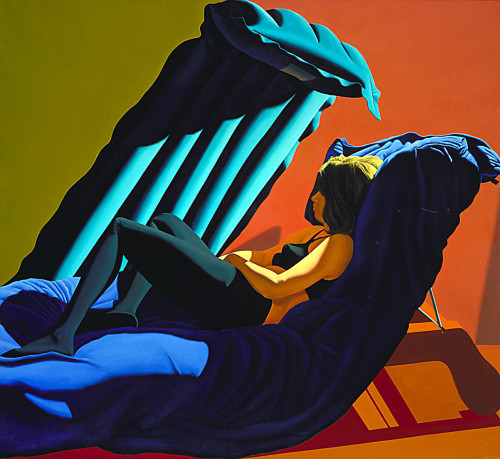
Jack Beal
Post WW2, the white middle class (sic) was still connected to a unionized tradition of working class solidarity. Notwithstanding the systemic racism, that varied region to region, there was a sense of collectivism, however faint in places, that was the residue of a 79% unionized labor force. Factory work was collective, even if already splintering. The rising anti communist hysteria that found its ultimate domestic expression in McCarthyism had not yet shaped popular narrative. The cliched reading of 1950s America as intensely reactionary is misleading. The repressive conformism of the post war era was certainly true, but there were also large cultural forces of resistance. Those forces of resistance have all but disappeared in mainstream *entertainment* and media.
“In a 1998 study conducted on behalf of Children Now, a nonprofit children’s advocacy group, interviewers asked twelve hundred American children how often and in what roles do they see their race depicted on television. The results were revealing. Children more often associate positive qualities such as financial and academic success, leadership, and intelligence with White characters, and negative qualities such as lawbreaking, financial hardship, laziness, and goofy behavior with minority characters.
When children were asked about positive qualities, 58% of the children said that they see Whites on television as having a lot of money. Only 8% perceived minority characters as having a lot of money. As for negative qualities, 6% reported seeing White characters breaking the law or the rules compared with 47% of minority characters.”
Sherri Burr, Law Professor,
New Mexico School of Law
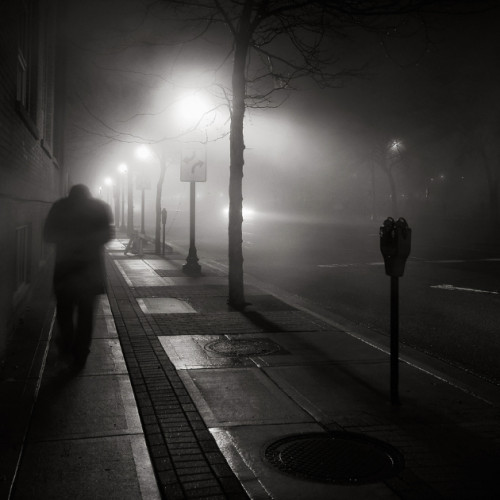
Brian Day, photography.
The acting codes in Law & Order, actually sort of followed on the style, to some degree, of Hill St. Blues. The humorless and unforgiving smugness of Sam Waterston encapsulated a style that was a decade in the making. The entire cast, of course, shared this implicit presentation. The performances all avoid hesitation, or the appearance of doubt. Confidence and an absolute belief in the rightness of one’s actions is expressed in dialogue that anticipates the next line by a delivery that is a fraction of a second sooner than normal. There is never any *up speech*, the ends of sentences dip, if anything. But usually are simply flat. Speech is clipped, lips tight, expressions frozen in grimaces that parody seriousness. It is a parody of attention, really, too, and of concentration. But it has migrated from focus to Botox furrowing. The dark scowling face is to be equated with integrity. The criminals are portrayed as the exact opposite; they hesitate, look away, fidget, etc. Waterston became the iconic image of white WASP authority, and institutional certainty. He was Allan Dullus, Rockefeller pere, and Cotton Mather all in one. This sense of coldness and no-nonsense authoritarianism has bled into almost all prestige drama now. There are exceptions, stylistically, but not many. A look at Wolf’s most recent series, Chicago P.D., reveals the very same acting codes. The message is that the authoritarian character is one showing tough love. The clear implication is that society must show ‘tough love’ (i.e forgive nothing).
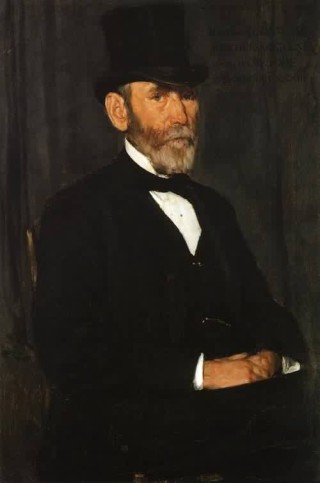
Joseph DeCamp. 1883.
The world view one sees today is shaped by Ivy league graduates, by Democratic Party interns, and the connections to the Pentagon and state department are a given. Hollywood is not liberal. It is in-line with Democratic Party values; i.e. Imperialist wars and Capitalism, white privilege (unspoken) and the civilizing mission of the West. Now, the alibi remains the feel good stories of black characters who ‘succeed’, or who are seen as accepted and integrated into the white world (civilizing). Of all the above, Simon is perhaps the most contradictory figure, and one who at least in some fashion harkens back to a Union sensibility. But he is also the most paternalistic and bent on civilizing. But the point isn’t to dredge up these mini biographies, but to examine the evolution of values audiences consume today in product created by a certain class.
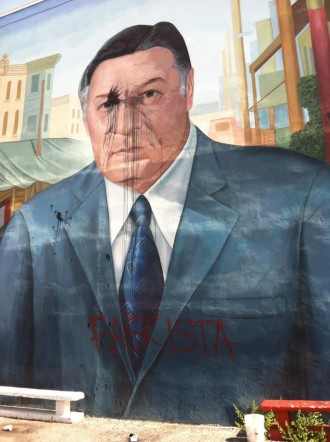
Vandalized mural of Frank Rizzo, Philadelphia.
The American psyche, as it is found in the literature of the U.S., starting with the adult male, was always conflicted in relationship to authority, and certainly to institutions. From Huckleberry Finn to Moby Dick, through The Great Gatsby and As I Lay Dying, these are books formed by the sensibility of resistance. Cultural resistance, anyway. There is a curious notion of responsibility, too, I think in the protagonists of American fiction. Ismael and Huck, and Tom Sawyer and Gatsby (and Nick Carraway) are none of them adults, or even desirous of adulthood per se. But it is always a question, and there are always dark portents about that place, that destination, adulthood. Without going into this too deeply, it is worth examining the idea of adulthood in contemporary Hollywood TV. The adult is uniformly either the authoritarian punisher, or the dissolving representative of kitsch patriarchy. This seeming contradiction (Don Draper and ..pick any Police Captain from any of a dozen shows) is between a fantasy figure of the past, of a fantasy past, and that of the controller of crime. Almost across the boards. The Aaron Sorkin protagonists (President or news anchor) are just the controller figure in drag. A drag that presents intelligence as synonymous with reasoned sobriety. That maturity is reactionary. The noble conservative is the new cool.
The figure of the adult male is simply invisible in Hollywood unless participating in violence, or ordering violence.
A.O. Scott wrote a piece entitled “The Death of Adulthood” in the N.Y. Times last year. He perhaps surprisingly made several good points, and raised talking points I’ve just touched on.
“The bad boys of rock ‘n’ roll and the pouting screen rebels played by James Dean and Marlon Brando proved {Leslie} Fiedler’s point even as he was making it. So did Holden Caulfield, Dean Moriarty, Augie March and Rabbit Angstrom — a new crop of semi-antiheroes in flight from convention, propriety, authority and what Huck would call the whole “sivilized” world.
From there it is but a quick ride on the Pineapple Express to Apatow. The Updikean and Rothian heroes of the 1960s and 1970s chafed against the demands of marriage, career and bureaucratic conformity and played the games of seduction and abandonment, of adultery and divorce, for high existential stakes, only to return a generation later as the protagonists of bro comedies. We devolve from Lenny Bruce to Adam Sandler, from “Catch-22” to “The Hangover,” from “Goodbye, Columbus” to “The Forty-Year-Old Virgin.”
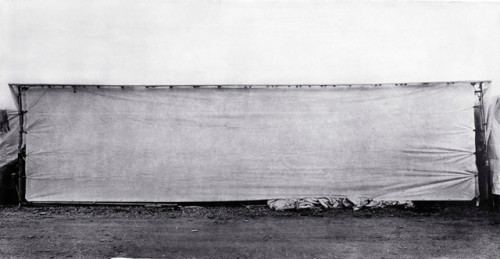
Jungjin Lee, photography.
This is obvious in a way, but the mistake was in not seeing Updike and even, to a degree, Bellow, as messengers of conformity. Those protagonists were not really even semi-anti heroes. Which is not to say Bellow, at least, is not a significant writer (although if I’m honest I don’t probably think he is), but only to suggest that it is a long long ideological journey from Rabbit Angstrom to Jerry Lee Lewis and Little Richard and James Brown. And here there enters a serious regional trope — the new sensibility of the white liberal is uniformly East coast. It is white and WASP and Ivy League, mostly. If the culture heroes of the mid century were largely from the great plains, or Pacific Northwest, or Mexican borderlands, or deep South, the new domesticated version presented by Updike and Cheever and Roth were from the urban East.
From Pollack to Agnes Martin and Clyfford Still, to Charles Sheeler, to Coltrane (born in North Carolina) and Ornette (Texas), to John Ford (Maine), you don’t find Ivy league grads or fraternity brothers (Howard Hawks, off the top of my head, would be an exception). And you won’t find many from among the Black Mask writers or the best of the post war screenwriters. Ben Hecht worked in the garment district, and then later at a newspaper. His parents immigrated from Minsk. (Hecht would later become an almost irrational Zionist and wrote polemics defending the terror group Irgun, but such psychological deformation is perhaps an interesting topic to unpack in Hecht’s case). Charles MacArthur was the son of a zealot Evangelist in rural Pennsylvania, and then the dozen German/Jewish emigre directors who fled fascism, or poets like Theodor Roethke (son of a greengrocer and suicidal mother in Saginaw Michigan) or James Wright, (born in Martins Ferry, Ohio, to a worker in a glass factory). The domesticating of the wild is the unwritten theme, or rather sub-theme or sub text of American art from its inception. It simply turned inward at a certain point.
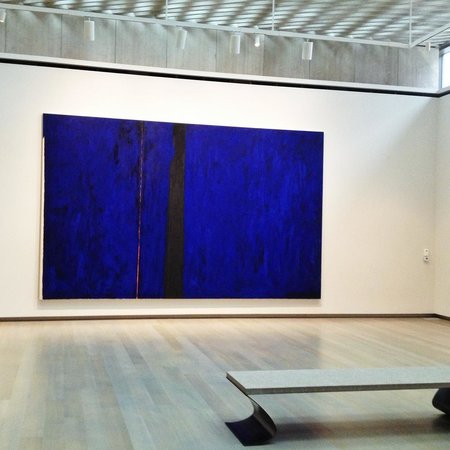
Clyfford Still, The Still Museum, Denver.
So, the bastard and brain damaged (metaphor) children of Ben Hecht and Billy Wilder are Seth Rogan and Judd Apatow, the devolved legatees of James Cain, David Goodis and Faulkner are the middle brow white liberals like Lorrie Moore (more on her below) and Aaron Sorkin or Rachel Kushner. The descendants of Still and Martin are Jeff Koons and Lucien Smith. And one could go on and on. But to return to the cop franchises and the white privilege expressed therein, these other elements are not unimportant. In one sense the people who make Law & Order are the people who buy Rachel Kushner. Now the problem with A.O. Scott is a complete lack of political consciousness, and that is itself a symptom that one needs to track in all this. A number of years ago Curtis White wrote: “But the strangest consequence of the cult of Reason is in the effect it has had on public education. There the tradition of the Enlightenment has created not independent inquiry and “free thinking” but the strictest sort of respect for authority. For example, to return to the question of morals, it is true that we no longer teach Christian morality in our public schools, but neither do we teach Kantian morality. As Christians rightly complain, we teach nothing at all of morality to our children. This is so except that we teach by example the morality of obedience to authority whose first model for our children is the teacher and later the boss and the mass media. This is not obedience to church or obedience to a system of moral thought. It is pure obedience.” Later in this same essay, White touches on the contradictions that pure obedience breeds; the fear that the system (Capitalism) is failing, and the desire for it to fail. The message of most Zombie movies. Zombie films, as I’ve touched on before, are the ruling class vision (unconscious fear) of the masses coming to steal their money, AND the desire in the public to tear it all down and start over. Audiences, I have a feeling, don’t really object to being seen as Zombies if only because the working life of most people today is one of sub-Zombie standards. Not to mention the satisfaction of getting to eat the rich.
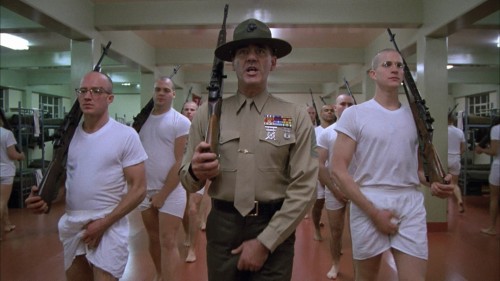
“Full Metal Jacket” (1987). Stanley Kubrick, dr.
The creators of Hollywood TV are either east coast Ivy league, or they quickly adapt to those values. TV remains, even today, connected to advertisers. Marketing is complex, and entities such as HBO function in multi tiered ways. Owned by Time Warner, HBO operates with semi autonomy, and has packages available throughout the world (HBO Asia, HBO Nordic, HBO Latin America Group). A step over Time Warner is Comcast and Cox Cable, et al. Now HBO, as an example, has a huge subscription base, but it still relies on advertisers who want the prestige cache of association with such a blue chip label.
Curtis White is famous for his book length essay The Middle Mind. I often think of White’s essay when I write specifically about Hollywood. It is the empire of middle mindness. It is also a place, and I speak from experience, in which you must reproduce the same, again and again, and you must flatter the status quo. If ever there was an industry where grovelling and bootlicking helped your career, then its Hollywood film and TV. The white liberal sensibility remains both the purveyor of white privilege and reformist in nature. The valorizing of police is endemic to TV narrative. If there exceptions to this, they are treated as unusual. In reality, one need only look back on the history of police brutality and corruption in the U.S. Police chiefs such as Frank Rizzo in Philadelphia, or Bill Parker in Los Angeles, or Joe Arpaio the Sheriff from Maricopa County, Arizona, or Garry McCarthy in Chicago, or Bill Gates also in Los Angeles, and the list could go on. And the list of police officer misconduct would fill a couple volumes. But the point is that the depiction of police is rarely, if ever, treated in a way that even remotely resembles reality. The staple of white liberal Hollywood remains that of *crime control*; the thin blue line, the police officer and detective as the last line of defense against the vast criminal underworld that threatens the safety of middle class America. There is no honest portrayal of systemic racism and corruption, of big city cops as an occupying army.
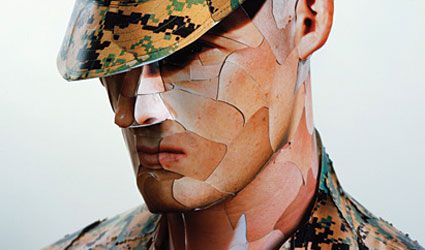
Oliver Herring
A growing theme in U.S. culture today, often hidden, or partly hidden, is that of our own complicity in this administered world. I think there is truth in this, but it is also a dangerous idea if not explored in a context that makes clear the coercion most Americans endure. Actors willingly take any role offered because they need to eat (as an example). They cannot turn down even the most odious of police state neo fascist TV show. You turn it down, you don’t work again. It is only a short step from precarious to homeless. But the flip side is willful unawareness. The flip side is the abdication of all responsibility. Of political amnesia. The normalizing of torture, of racist police brutality, of inequality and Imperalist war propaganda is all found in the TV shows Hollywood churns out. The apology is always “its just a movie”. But nothing is just an anything. In culture the only thing that matters is the thing itself. The artwork. But the system avoids a lot of this by promoting the idea of *Entertainment*; of art as a leisure time activity like golfing or bowling. And often, in my experience, network executives, and writers, show runners, and actors are simply ignorant. These are coddled white people, intellectually sheltered and insecure. They don’t know more than what the 6 o clock news tells them. They instinctively side with their class. Samantha Power is one of them. PEN is now run by Suzanne Nossel, Ivy league, white, a willing bureaucrat to Empire. She is one of them. They would love such people to come over for dinner.
“The “boards” of every non-profit organization, university, theatre, etc., no matter what the organization’s original goals were, are made up of the same tiny group of people, and they choose the organization’s leaders, presidents, artistic directors on the basis that those individuals would be good at “fund-raising,” i.e. getting money out of a few more people from that same group……Then even the once serious people in the organization begin to internalize the in-born belief of the corporate-minded board members that the most important thing for the organization is to grow, raise more money, get more members…”
Wallace Shawn
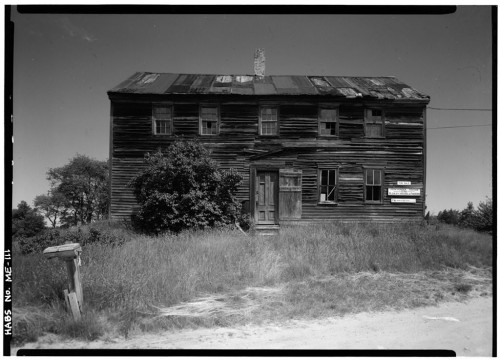
Gerda Peterich, photography. (John Hunter Tavern, Topsham Sagadahoc County ME)
The arts organizations and Hollywood are joined at the hip. They recycle the same people, as do NGOs for the most part. Nossel once worked for Amnesty International.
Jeremy Corbyn’s surprsing win in the U.K. suggests promise. But the attacks on him have started, and they have started in the U.S., too. But that’s not surprising. Look at how Hollywood depicts Chavez or Castro. Or Putin and China. And of course how countries like Iran are portrayed. The public learns politics, largely, from Hollywood. The faux leftist and deeply creepy Bernie Sanders called Chavez a “dead dictator”. I cannot think of a single Hollywood TV show in which Chavez is not depicted as a dictator and South America not shown as backward. Not a single one. No leading character in prestige shows, even, has ever said anything not in agreement with U.S. Imperialist foreign policy. Not one.
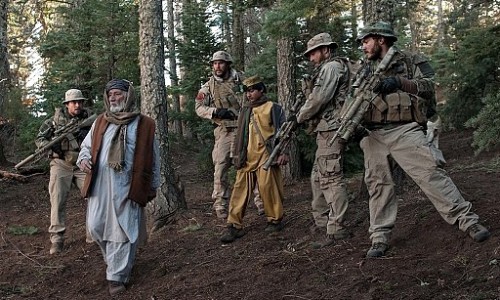
“Lone Survivor” (2014). Peter Berg, dr.
The U.S. and its foreign policy has not changed since WW2. But the world is poorer now, and if possible, even angrier. And the environmental cost is catching up with humanity. But the reason I continue to emphasize culture is because it ‘does’ matter. There is a great cynicism about art, today. And sticking with film and TV for a moment, it really is worth looking back thirty or forty years to see the way radical voices transform consciousness. Now one might argue that such forces of resistance failed. That may or may not be true depending on how you define success, but even if they failed by one criteria, that does not mean they were not valuable. And are not still valuable. Sticking with Curtis White for a moment, because his comments on Fassbinder are really relevant here:
“Fassbinder saw the importance of his own work not in terms of
a social criticism of a fascist or authoritarian state but in terms of
formal strategies for creating and maintaining an “outside.” For the
purposes of the argument I am trying to make, the notion of an
outside is critical because it is through a viable outside, a sort of
counterspirit to the spirit of capitalism, that the spirit of servility,
our captivity to evil, can be effectively challenged.”
I have written something very similar a number of times on this blog. An *outside*. That is what art creates. It is, really, what Adorno was focused on, too. Today, radical voices are usually absorbed, and integrated into the system. They are bought off. Resistance means not being bought off. But that is only the first step. The second step is creating work from a perspective ‘outside’ Capitalism and its inherent logic of domination. The seduction of celebrity is now so acute as to be a kind of virus. One sees this in all fields, there are celebrity journalists, celebrity athletes, celebrity politicians and celebrity philosophers and academics. And all of them must work to be celebrities. It does not fall out of the sky and stick to you. And this IS Capitalism, this promotion of self interest. It is money. It is exchange value. Anyone who willingly accepts what amounts to bribes from the system, will be destroyed. Fassbinder never did. Genet never did. One can find success, of a sort, and not be bought off. But so deeply ingrained is marketing that people view themselves as commodities and cannot image their artistic or creative labor outside the realm of marketing. If you speak of ‘developing your brand’, you are not an artist. I always distrust a certain level of success. There is good work that happens by artists who then become ‘celebrities’ of a sort. And immediately the subsequent work suffers. Without exception. Without a single exception. That is the rule of capital.
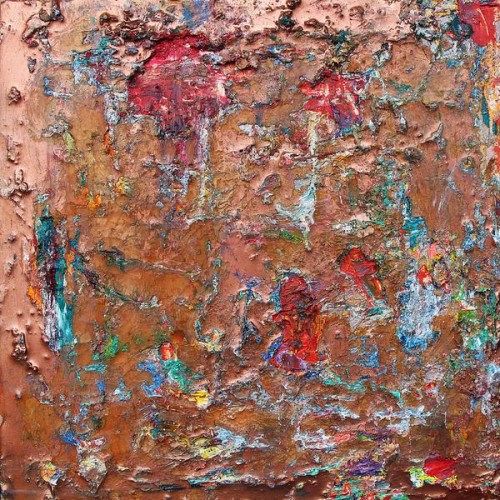
Padrick Bentley
A long time ago, in some obscure interview I gave, I was quoted as saying “embrace failure”. The context was immediately lost and this idea became short hand for subtle ridicule. The point was twofold; losers are the most hated figures in contemporary Capital, and failure is not a topic that is seen as fit for narrative. Hollywood doesn’t like failure. Of any kind. Shows are cancelled in the middle of their first season, regardless of quality, because they don’t attract viewers. Nobody in Hollywood thinks long term. They don’t think about change. The idea is to NOT change. The idea is to perpetuate what ‘is’. And the homogenizing of culture is, today, far worse than it was even twenty years ago.
In the Sixties, the rebellion that followed on the Anti War movement distrusted authority. Today, the rapt obedience of boot camp trainees is presented as cool. Kubrick could ridicule the dehumanizing of military obedience in Full Metal Jacket, and today such obedience is recreated in countless TV shows. The Sunday school manners, the yes sir and no sir and the unquestioning respect for hierarchies of power can be seen repeated in virtually every crime drama on TV. The new protagonist is obedient. Whether male or female. Increasingly, in fact, female heroines are duplicate robotic punishers.
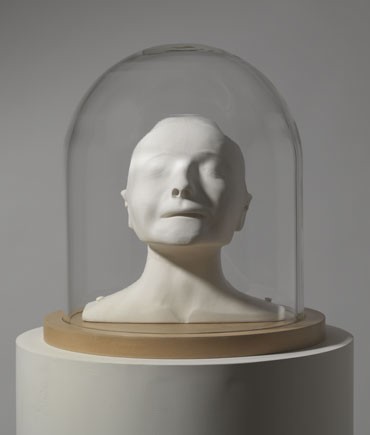
Christine Boreland
One of the poster children for middle mindness is Lorrie Moore. Again, an MFA writing grad, white, non threatening and insipid. I want to quote from her review of Homeland, after the second season
.
“Homeland’s star is the brave Claire Danes depicting the brave Carrie Mathison, whose bipolar disorder is a secret she is trying to keep from the CIA (which would withdraw her security clearance if it knew) and whose second-guessing and sixth sense (the hunch sense) make her a kind of drug-sniffing dog for the counterterrorism unit that employs her. (People who do their work fully, and the only way they know how, are often apprehensive about being called “brave,” as if their underwear were showing or life-threatening spinach were in their every smile. Danes nonetheless has put vanity aside for this performance. Compare her with the always pretty analyst played by Jessica Chastain in Zero Dark Thirty.) The pressured speech and flights of ideas that are symptoms of the character’s disease are also useful in elaborate detective work, since really only an obsessive and insomniac can puzzle it all the way through.”
No, I don’t know why Claire Danes is brave. But this entire review never once touches on the politics of the show. Never once even raises the issue as a secondary consideration. This sort of divesting of context, is typical of mainstream media. (The above quote is from her review in New York Review of Books). The creators in Hollywood are readers of The Atlantic and The New Yorker, and yeah, NYRBs. They are the educated white class who have slid ever further toward a middle mind totalitarianism, an acceptable incarnation that is really the new American fascism. And Lorrie Moore is a simply dreadful writer, so why is her work so visible?
Now, you don’t have to worry as much about Donald Trump as you do the Lorrie Moore sensibility, for Trump is just the clown-show, the opening act to the electoral circus. The real fascists today — Republicans or Democrats — all eat together at the same restaurants, read the same papers, and instinctively cleave to the Clinton era liberal white supremacism value system. Bill and Hillary are every bit as racist as Donald Trump. They are believers in civilizing the natives…both domestic and global. The new liberals are openly patriotic now, because patriotism is now cool, too. They are the children of Jack McCoy (Waterston in Law & Order). And they find Jack Bauer cool, and they might think the show is a ‘bit’ rightwing, but secretly they admire the idea of Jack Bauer. They love Aaron Sorkin, even if, you know, his depiction of women is worth talking about (over cocktails at EP/LP or The Clocktower, or lunch at O ya) The most serious cultural destruction has taken place at the hands of this small privileged white class of pseudo intellectual, the expensively educated well born hipsters of Hollywood, for they are also linked to galleries and arts organizations, to funding and by extension they are thrilled to be included in 500 dollar a plate dinners to raise money for some Democratic hack. And again, the working class is absent, as it is absent at the symposiums of most academics. And I think academics are barely even aware of this, the tyranny of institutional accreditation.
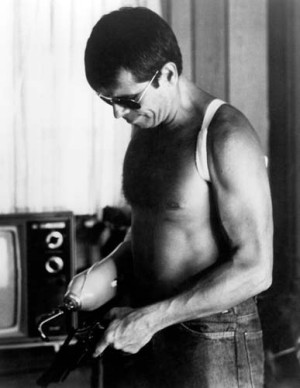
“Rolling Thunder” (1977)
John Flynn,dr.
The tough guy cop in one sense is not just a white liberal symptom, it is also, in a strange way, the projection of lost fathers for a society in which familial organization has fallen apart. This is the phantom signifier of an Oedipal narrative that is dissolving. But that signifier is almost (!!) totally disconnected from the actual police in city departments across the U.S. It is too easy, in one way, to just dismiss crime narratives as surplus sadism or expressions of ruling class authoritarianism and racism. Because they are doubled figures, too. Of course there are qualities of difference. Nic Pizzolato writes a far different police detective than, say, Theresa Rebeck. I mean there *are* distinctions, and its very insidiously regressive to not make those distinctions.
Kaja Silverman writes: “A number of films made between 1944 and 1947 attest with unusual candor to the castrations through which the male subject is constituted — to the pound of flesh which is his price of entry into the symbolic order, as well as to the other lisses that punctuate his history.” Now, Silverman cites a number of films…everything from Spellbound (1945) to Pride of the Marines (1945) and Gilda (1946). These films are precursors to the crises of masculinity one sees so starkly in Law & Order. The hero of these films is always uncomfortable at *home*, and this was a post war theme. The home in these films is not there. These are the films of paternal failure (Silverman) and in that sense they are the antecedents to the prestige crime series of today. If these post WW2 films are the front edges of paternal failure, then the post Viet Nam noir of Cutter’s Way, Who’ll Stop the Rain, and Rolling Thunder, are the failure of recuperation. The paternal role now without a home, is faced with a more primordial lack. And it is worth noting that amputation figures prominently in both Rolling Thunder and Cutter’s Way. In this sense, the flaccid male organ returns home whipped. The subsequent rise of the puritanical WASP authority figure is the perfect replacement for potency — and in that sense, the works of Bochco, Sorkin and Wolf are the pure desire for patriarchy, the recuperation of the phallus, but also, as doubled, they must face their own homosexual panic. Desire is the desire of what has filled the lack. The white liberal embrace of same sex marriage is not born of an innate sense of fairness, but more a deflection of their own conflicted erotic sub conscious.
An interesting side bar note here, from John Patterson’s comments on the re-release of Cutter’s Way in 2011:
“Released in 1981, it’s like the last Hollywood movie of the 1960s, in which the aspirations and ideals of that long-gone decade finally soured irrevocably on its dazed, burnt-out survivors. It belongs alongside Karel Reisz’s Who’ll Stop The Rain (its perfect double-bill doppelganger), and Arthur Penn and Alan Sharpe’s Night Moves – both visions of a post-Vietnam, post-Watergate American malaise.”
And indeed, something spiritual and literate, both, went out of studio films after this. That era, which was already looking back, was ending in real time, culturally.
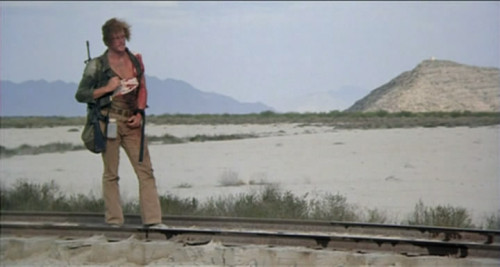
“Who’ll Stop the Rain” (1978). Karel Reisz, dr.
A final consideration of the Law & Order franchise, and those that have followed. Ernst Bloch has pointed out that the detective novel is predicated upon a shift from cui bono, from the encompassing suspicion of benefit from the crime, to the evidentiary trials of modern courts. Clues, evidence, and logic replaced extortion and torture. The eyewitness even failed to stop the procedure of collecting evidence. Here is the birth of the clever, at least as fictional narratives of detection are concerned. The Freudian unconscious coincides with the birth of clues and sub-sensory micro optics. The rise of detective fiction shaped not just jurisprudence and evidentiary trials, but it shaped all narrative, and the most significant aspect had to do with ‘something has happened’ BEFORE the story begins. This is follwed by guessing, unmasking, and finally discovery. Just how Oedipal that listing is, I leave to others. Bloch posits the idea of discovery and unmasking as the most significant and for the reason that reconstitution of meaning is the end goal. We imagine a perfect world and we try to piece it together. Bloch in conversation with Adorno, said every criticism of imperfection implies possible perfection. Or the desire for perfection. The detective was an outsider — from Father Brown to Sam Spade to the Continental Op. The police detective, with whom the PI shares a title, is the ultimate insider. He is, in fact, the containment supervisor who is meant to keep the ‘wild’ locked down. Crime is on the decline, and even if it weren’t, the definitions of crime are so suspect at this point as to be meaningless. There are people doing life for marijuana possession. The insider, the bull, that figure on horseback with shotgun keeping watch over the chain gang — that is the same figure as Chris Noth’s “Mike Logan”, or Jason Beghe’s “Hank Voigt” in Chicago P.D. (Beghe is another prep academy grad and former male model and pal of JFK Jr.) These are the fantasy figures of rich white men. Self identified as liberal, but in reality are nothing of the sort.
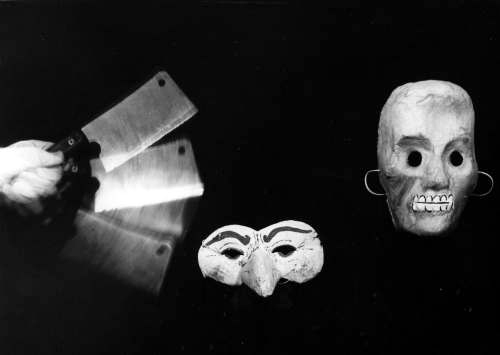
Jerzy Lewczynski, photography.
I believe, and I think Bloch implies this, that all stories are crime stories…and all crime stories are preceded by a crime (or as Bloch puts it, at least ‘a serious mistake’).
“And once again the common denominator for everything is the process of uncovering, whereby in this case the presupposition is that a veiled misdeed precedes the creation of the world itself.”
Ernst Bloch
The manufacturing of ruling class vanities and compensatory desires for covering over a lack, enact narratives of uncovering a ‘thing’, a something gone missing, or hidden. The obsession with forensics in the CSI franchise suggests the repetitive/compulsive aspect to all this. Detection and what it uncovers must be handed over, in semi secrecy, to the Father. Sam Waterston in this case. The dark countenance of the primal Father, the pastors and priests who surround him, and finally the guilty. And the guilty is usually from outside, is a figure of otherness, and only punishment (in true Girardian fashion) can re-unite the fractured society.
Lastly, from H. Rap Brown, in 1969.
“For 400 years the internal contradictions and inconsistencies of white america have been dealt with through its institutions. In regard to race or color, these contradictions have always been on a national, never a local or individual level. Whites as individuals have always loved to be thought of as superior. They have always known that if they could justify and make their actions legal, either through their religion, their courts or their history (educational system), then it would be unnecessary to actually rectify them because the negro would accept their interpretation. White america’s most difficult problem thus becomes how to justify and not rectify national inconsistencies. If white nationalism is disguised as history or religion, then it is irrefutable. White nationalism divides history into two parts, B.C. and A.D. — before the white man’s religion and after it. And “progress,” of course, is considered to have taken place only after the white man’s religion came into being. The implication is evident: God is on the white man’s side, for white Jesus was the “son” of God.”

Interestingly someone posted this crap on Facebook right after you posted your link to your insightful and accurate article. Here is the link as a look into and evidence of how frequently Hollywood kisses the face of power. http://grantland.com/hollywood-prospectus/the-law-order-awards-celebrating-25-years-of-bah-bhmmm/
John Updike was the greatest writer of post-1945 America (yes, more talented than Pynchon)
I be the last person to suggest Pynchon. But I have a conflicted relationship with Updike. I actually think he’s a great critic. Especially about painting. But best post war…..no. I’m not sure who I would nominate, but I doubt its updike. Post war is difficult…if we are limiting this to prose and to US writers. But id at leat think about Flannery O Conner…and then its very difficult….because its amazing how many good writers one could list pre war. But McCarthy is among those Id list, and Patricia Highsmith. And Iceberg Slim. But i hate lists….but its not a great era for american novelists. I mean Updike is part of the discussion….just not sure what part.
What about Paul Bowles or William Gaddis?
But I think it’s true that the very best art, in a sense, represents or symbolizes the society from which it comes, whereas bourgeois art attempts to paint a flattering but inaccurate picture. In the case of great writers, the novels or Faulkner and McCarthy are the very antithesis of “well-written”.
@remy:
I always forget Bowles is american. Yeah, Id add him. I actually love bowles. Gaddis…..I dont know why I’ve appreciated gaddis more. I should I think, probably. I have to revisit that one. The issue of the bourgeois artist is complex. But its a point when discussing Updike, for example. His concerns are the system he is in, even if critical of it. He is like Ibsen in that sense. And i admire ibsen, but I dont love him.
John, read The Coup